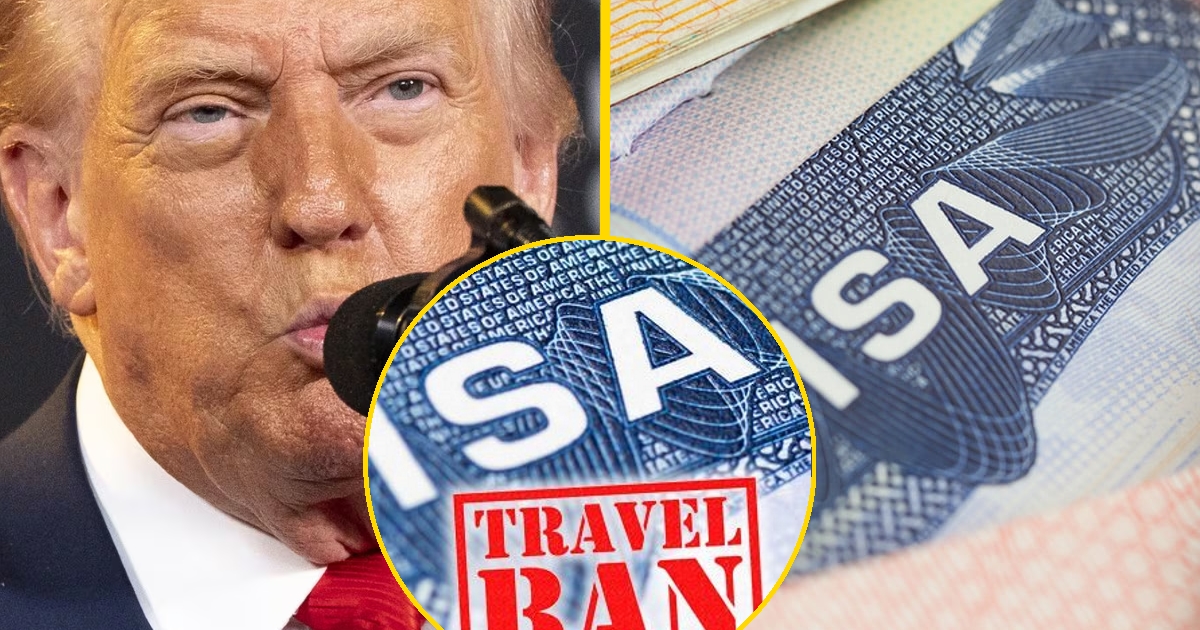Millions of people who thought their legal status in America was secure now find themselves staring into uncertainty after President Donald Trump’s administration announced that every single foreigner with a U.S. visa will be reviewed for violations. The staggering scope of the plan—55 million people in total—represents not just an unprecedented expansion of immigration enforcement, but also a chilling reminder of how fragile legal protections can be in the hands of a government willing to upend precedent overnight. The order has sent shockwaves through immigrant communities, universities, and foreign governments that rely on America’s promises of stability and fairness.
According to AP reporting, the review will target tourists, workers, students, and exchange visitors—virtually everyone with a visa on record. Officials described it as “continuous vetting,” a process that allows U.S. agencies to reexamine files whenever new information appears. That includes not only criminal records or overstays, but also things as subjective as political speech on social media. The sheer scale of the program has alarmed experts who say it places lawful visitors under permanent suspicion, as if legal status is no longer a guarantee but a temporary privilege subject to political winds.

A Guardian analysis noted that the review isn’t just about people physically present in the U.S.—the number includes millions of foreigners living abroad who hold visas but may never enter the country. The logistics of monitoring 55 million individuals are staggering, yet the administration insists it has both the authority and technology to comb through international databases, online footprints, and even private communications flagged by partner agencies. For critics, this signals a move away from immigration enforcement as law and toward surveillance as policy.
“Fifty-five million people now live with the fear that one post, one mistake, could end everything.”— @ImmigrantRights
Advocacy groups immediately condemned the decision as overreach. Lawyers pointed out that visas are already subject to revocation for fraud, crime, or national security issues. What’s new, they say, is the blanket scale—treating all foreigners as suspects. In interviews documented by The New York Times, one immigration attorney described clients calling in panic after hearing the news. “They feel like they’re being hunted,” he said. “Even if you’re a graduate student with no record, the fear is real.”
The crackdown extends beyond paperwork. In a policy memo reviewed by The Washington Post, officials confirmed that social media activity would be scrutinized, including posts deemed “anti-American” or “linked to radical ideology.” Civil liberties experts warn that such vague categories invite abuse and could punish lawful expression. Already, students with pro-Palestinian views have reported increased questioning at airports, with some visas revoked without appeal.
“This isn’t vetting. It’s digital thought-policing.”— @CivilLiberties
Universities and research institutions fear devastating fallout. International students bring billions into the U.S. economy each year, filling classrooms and labs with vital talent. A survey cited by policy experts found that 42% of foreign students are now reconsidering U.S. study plans due to fear of deportation or visa revocation. Professors warn that America risks losing its competitive edge, as students turn to Canada, the UK, or Australia where policies appear more stable. “We recruit the brightest minds, and now we’re telling them we might kick them out for a tweet,” one dean told reporters.

The announcement also hits industries dependent on foreign labor. Hospitals worry about shortages of medical residents on temporary visas, while tech firms anticipate disruptions to projects staffed by international engineers. An economic briefing noted that worker visas are particularly vulnerable, as officials may label minor paperwork errors as violations. For companies already battling labor shortages, the chilling effect could ripple through the economy.
“A visa now feels like probation. At any time, they can decide you’re out.”— @GlobalRightsWatch
For individuals, the personal toll is devastating. One woman from India, interviewed by The Los Angeles Times, said she hasn’t seen her parents in three years while completing her master’s program. Now, she fears traveling home for winter break, worried her visa might be revoked while she is abroad. Another student from Nigeria described deleting entire social media accounts after friends warned that political jokes could be flagged. “I don’t know what freedom means anymore,” he said. “Every word feels dangerous.”
Even some Republican lawmakers expressed hesitation. A senator told Politico that the initiative was “politically risky,” warning it could alienate allies and complicate diplomatic ties. European officials privately voiced alarm, noting that hundreds of thousands of their citizens travel to the U.S. each year under visa arrangements. If those agreements are upended, the consequences could escalate into trade disputes or travel restrictions imposed in retaliation.
Meanwhile, immigrant communities inside the U.S. brace for more raids and interrogations. Activists documented by TIME described how fear has already gripped neighborhoods where visa holders live alongside undocumented residents. “People are pulling their kids out of school, closing businesses early, even avoiding hospitals,” one organizer said. “They think any wrong move will get them deported.”
“They call it vetting. We call it intimidation.”— @DemocracyWatch
For Trump and his allies, the message is simple: no one is safe from scrutiny. Officials have openly described the program as a deterrent, intended to discourage “undesirable foreigners” from applying for visas at all. The administration’s defenders argue this is about national security, citing isolated incidents of visa overstays linked to criminal activity. But critics counter that weaponizing fear against millions of law-abiding visitors crosses a line that erodes America’s global standing.
Ultimately, the review of 55 million visa holders may prove less about actual enforcement than about symbolism. It reinforces Trump’s narrative of a besieged America, perpetually under threat from outsiders, and elevates suspicion into official policy. For millions of families, students, and workers, the result is the same: a constant fear that life in the U.S. could collapse with a single phone call or email. And for America itself, it’s a test of whether the values of fairness and stability can survive an era where legality itself offers no protection.






